Breakout Speakers
- Career Development
- Wellness & Mindfulness
- Get Involved - Be Prepared - Make a Change!
- Be Part of the Future with STEMM
 Ruth Williams holds the Charles Lee Powell Chair in Mathematics I at the University of California, San Diego (UCSD). She is a mathematician who works in probability theory, especially on stochastic processes and their applications. She is particularly known for her foundational work on reflecting diffusion processes in domains with corners, for co-development with Maury Bramson of a systematic approach to proving heavy traffic limit theorems for multiclass queueing networks, and for the development of fluid and diffusion approximations for the analysis and control of more general stochastic networks, including those described by measure-valued processes. Her current research includes the study of stochastic models of complex networks, for example, those arising in Internet congestion control and systems biology.
Ruth Williams holds the Charles Lee Powell Chair in Mathematics I at the University of California, San Diego (UCSD). She is a mathematician who works in probability theory, especially on stochastic processes and their applications. She is particularly known for her foundational work on reflecting diffusion processes in domains with corners, for co-development with Maury Bramson of a systematic approach to proving heavy traffic limit theorems for multiclass queueing networks, and for the development of fluid and diffusion approximations for the analysis and control of more general stochastic networks, including those described by measure-valued processes. Her current research includes the study of stochastic models of complex networks, for example, those arising in Internet congestion control and systems biology.
Williams studied mathematics at the University of Melbourne where she earned her Bachelor of Science (Honours) and Master of Science degrees. She then studied at Stanford University where she earned her Ph.D. degree in Mathematics. She had a postdoc at the Courant Institute of Mathematical Sciences in New York before taking up a position as an Assistant Professor at the University of California, San Diego (UCSD). She has remained at UCSD during her career, where she is now a Distinguished Professor of Mathematics.
Ruth Williams is an Elected Member of the US National Academy of Sciences, an Elected Fellow of the American Academy of Arts and Sciences, an inaugural Fellow of the American Mathematical Society, a Fellow of the Institute for Operations Research and the Management Sciences, a Fellow of the American Association for the Advancement of Sciences, and a Fellow of the Institute of Mathematical Statistics. She is also a Fellow of St. Hilda's College at the University of Melbourne, and received an honorary Doctor of Science degree from La Trobe University in Australia. Williams has been a Guggenheim Fellow, an Alfred P. Sloan Fellow and a National Science Foundation Presidential Young Investigator. She delivered a 45-minute invited address at the International Congress of Mathematicians in 1998. In 2007, Williams received the Best Publication Award of the INFORMS Applied Probability Society, jointly with Amber Puha and H. Christian Gromoll. In 2012, Williams served as President of the Institute of Mathematical Statistics, a major international professional society for the development and dissemination of the theory and applications of probability and statistics. In 2016, Williams was awarded the John von Neumann Theory Prize by the Institute for Operations Research and the Management Sciences, jointly with Martin I. Reiman.
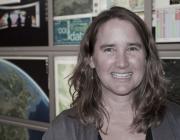
Dr. Debi Kilb is a Project Scientist at Scripps Institution of Oceanography, where she specializes in crustal seismology research. Her current research has an emphasis on understanding the underlying source physics of earthquakes and how one earthquake can influence another. Kilb plays an active role in education and outreach at Scripps, participating in more than 25 events each year. She cofounded the Scripps Graduate Student Visualization contest and founded the annual Teacher Earthquake Education workshop (now in its 12th year). When media request information about noteworthy earthquakes, locally and globally, Kilb is often the responding Scripps scientist.
Kilb is also the Science Outreach Director at Sally Ride Science. In this capacity she hires instructors and vets classes for the annual Sally Ride Science Summer Academy (>450 students/year), in addition to teaching the 'Music of Earthquakes' class for the Academy. Kilb is also integral in the Library NExT program, which is a partnership between Sally Ride Science and the local San Diego Libraries. Library NExT is providing free classes to middle school and high school students at 10 select San Diego Libraries (>700 students reached in 2017).
Born in Schenectady, New York, Kilb received a B.A. in mathematics and computer science, with a minor in music, from UCSD. She received a master’s degree in applied mathematics from UCLA, and a Ph.D. from the University of Memphis, specializing in seismology. She served as a graduate intern at the U.S. Geological Survey in Menlo Park, Calif., completed a postdoctoral fellowship at Princeton University, and then joined Scripps, initially as a postdoctoral fellow in 2001.
Research Webpage: http://scrippsscholars.ucsd.edu/dkilb/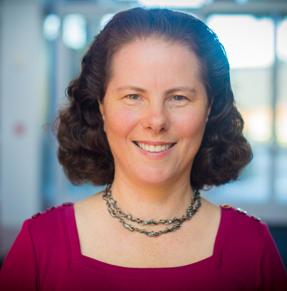 Dr. Pamela C. Cosman received her B.S. in Electrical Engineering from Caltech and her Ph.D. in Electrical Engineering from Stanford University. Since 1995, she is on the faculty of the Dept. of Electrical and Computer Engineering (ECE) at UCSD where she is currently a Professor. Her administrative and editorial positions include Director of the Center for Wireless Communications (2006-2008), Editor-in-Chief of the IEEE Journal on Selected Areas in Communications (2006-2009), ECE Department Vice-Chair (2012-2014), and Associate Dean for Students (2013-2016) of the Jacobs School of Engineering. She has published over 250 papers in the areas of image/video compression and processing and wireless communications, as well as one children’s book (The Secret Code Menace, Ransom, UK, 2016) for ages 8 to 11, which introduces error correction coding and other concepts from wireless communications through a fictional story.
Dr. Pamela C. Cosman received her B.S. in Electrical Engineering from Caltech and her Ph.D. in Electrical Engineering from Stanford University. Since 1995, she is on the faculty of the Dept. of Electrical and Computer Engineering (ECE) at UCSD where she is currently a Professor. Her administrative and editorial positions include Director of the Center for Wireless Communications (2006-2008), Editor-in-Chief of the IEEE Journal on Selected Areas in Communications (2006-2009), ECE Department Vice-Chair (2012-2014), and Associate Dean for Students (2013-2016) of the Jacobs School of Engineering. She has published over 250 papers in the areas of image/video compression and processing and wireless communications, as well as one children’s book (The Secret Code Menace, Ransom, UK, 2016) for ages 8 to 11, which introduces error correction coding and other concepts from wireless communications through a fictional story.
Dr. Cosman is Co-Director of the UC San Diego Center for Research on Gender in Science, Technology, Engineering, Mathematics, and Medicine that fosters rigorous social scientific research to create more equitable and productive workplaces. For 6 years, she has served as the Faculty Equity Adviser for the Jacobs School of Engineering, and she is the UCSD Principal Investigator on an NSF S-STEM consortium grant (2016-2019) to support low-income freshman engineering students. For her efforts to promote diversity in STEM fields, Prof. Cosman was awarded the 2016 UC San Diego Affirmative Action and Diversity Award, and the 2017 Athena Pinnacle Award (Individual in Education). She is a member of Tau Beta Pi and Sigma Xi, and a Fellow of the IEEE.
UC San Diego has a culture of innovation which leads to delivering world-class education, research, and services. Under the hood, there’s a growing culture of business process improvement, leading to efficiencies and improved services across the institution. This efficiency mindset has allowed all employees, no matter their background, to connect via a common toolset and a common goal. Come hear about Lean initiatives going on across the campus and how technologists and non-technologists alike are working together to increase efficiency in all areas. Some initiatives include Lean Six Sigma training, Process Palooza, Lean Bench, and Business Excellence Community of Practice.
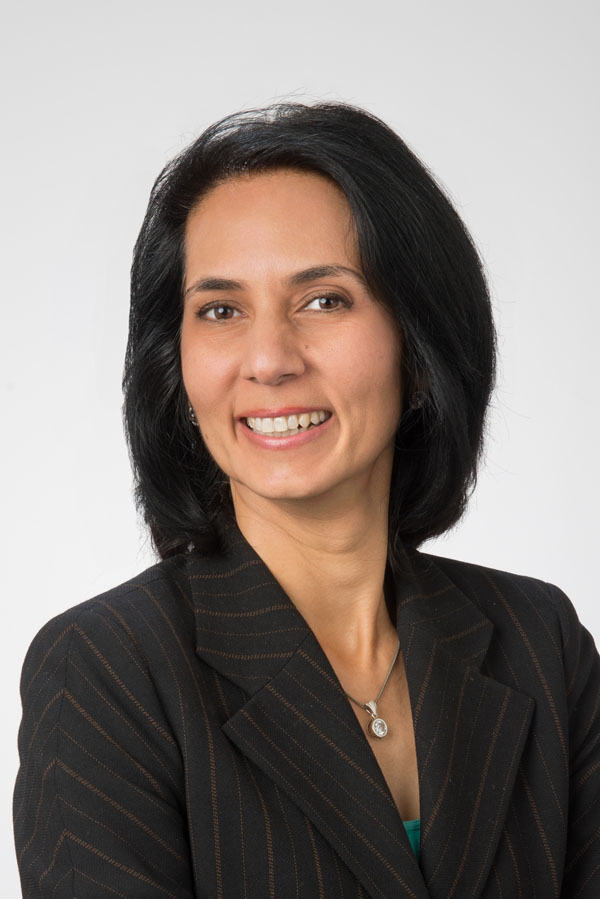 Mojgan Amini, M.S. Computer Science, serves as the Director of Process Management & Continuous Improvement at UC San Diego's Information Technology Services department. Her group's mission is to provide frameworks, guidelines, communication channels and standards to simplify IT Service Management, Project and Portfolio Management, Governance, Organizational Change Management, Culture and Outreach across UC San Diego and in coordination with the UC system. Mojgan currently serves as the chair of the Business Excellence Community of Practice at UC San Diego, and has served as the chair of the University of California IT Architecture Group.
Mojgan Amini, M.S. Computer Science, serves as the Director of Process Management & Continuous Improvement at UC San Diego's Information Technology Services department. Her group's mission is to provide frameworks, guidelines, communication channels and standards to simplify IT Service Management, Project and Portfolio Management, Governance, Organizational Change Management, Culture and Outreach across UC San Diego and in coordination with the UC system. Mojgan currently serves as the chair of the Business Excellence Community of Practice at UC San Diego, and has served as the chair of the University of California IT Architecture Group.
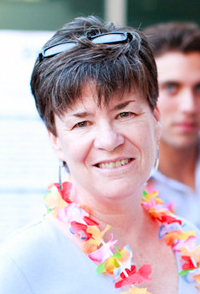 Dr. Mandy Bratton is the Executive Director of Global TIES - Teams in Engineering Service and a Lecturer in the Jacobs School of Engineering at the University of California, San Diego and Change Leader for UC San Diego’s Ashoka Changemaker Campus program. She earned a Ph.D. in Counseling Psychology from the University of Texas at Austin in 1996. Prior to joining the Jacobs School, Dr. Bratton served as a senior faculty member in Psychology and Human Development and Interim Associate Dean at Prescott College for the Liberal Arts, the Environment, and Social Justice.
Dr. Mandy Bratton is the Executive Director of Global TIES - Teams in Engineering Service and a Lecturer in the Jacobs School of Engineering at the University of California, San Diego and Change Leader for UC San Diego’s Ashoka Changemaker Campus program. She earned a Ph.D. in Counseling Psychology from the University of Texas at Austin in 1996. Prior to joining the Jacobs School, Dr. Bratton served as a senior faculty member in Psychology and Human Development and Interim Associate Dean at Prescott College for the Liberal Arts, the Environment, and Social Justice.
Since 1986, Dr. Bratton has enjoyed an affiliation with the Semester at Sea Global Studies program that has included three academic voyages around the world, visiting more than twenty countries. She is a founding member and affiliate of UC San Diego's Center for Research on Gender in the Professions and Center for Global Justice.
Her scholarly interests include international education and development, the impact of global and community engagement on students and the organizations and communities with which they work, and gender and diversity issues in academic and professional settings. Dr. Bratton is the Principal Investigator on SISTERS: Sustaining Interest in Science, Technology, Engineering, and Research in Society, a three-year, NSF-funded intervention project that aims to ignite and sustain the STEM-related interests of 5th and 6th grade girls from under-served communities.
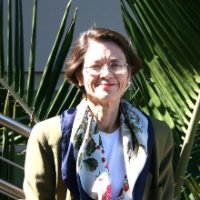
JoAnne Starr is Assistant Dean for Curriculum, Strategy & Rankings at the Rady School of Management at University of California San Diego. She works directly with faculty on development and delivery of Rady’s MBA and Master’s programs. Previously, she held the position of Assistant Dean for Graduate Programs and, in that role, was a member of Rady’s founding team. She also currently serves as staff leader for Rady’s Center for Social Innovation & Impact and as a member of UCSD’s Change Leader team, which provides direction and coordination for Changemaker Campus programs and initiatives. Prior to Rady, she served as Assistant Dean for MBA Programs at University of California Irvine. JoAnne also held positions at the University of Washington and at The Wharton School. She has been active as a committee and board member for the MBA Career Services Council and Graduate Management Admissions Council. Her undergraduate degree is from Vassar College, her graduate degree from University of Pennsylvania.
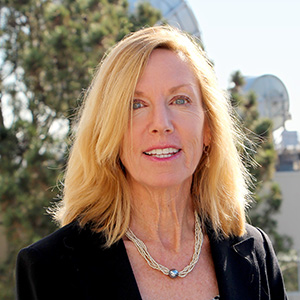 Dr. Karen Flammer is the Director of the Center for Digital Learning (CDL) within the Teaching + Learning Commons at UC San Diego. The CDL advances teaching and learning excellence on the UC San Diego campus and increases access to our scholarship using digital technologies. During her career, Dr. Flammer has developed complex online learning programs, applied research in pedagogical strategies to program development, worked collaboratively with diverse audiences, and successfully authored million dollar grants. She is also co-founder and Executive Director of Sally Ride Science, a STEM education technology company dedicated to inspiring young people in STEM and to promoting STEM literacy.
Dr. Karen Flammer is the Director of the Center for Digital Learning (CDL) within the Teaching + Learning Commons at UC San Diego. The CDL advances teaching and learning excellence on the UC San Diego campus and increases access to our scholarship using digital technologies. During her career, Dr. Flammer has developed complex online learning programs, applied research in pedagogical strategies to program development, worked collaboratively with diverse audiences, and successfully authored million dollar grants. She is also co-founder and Executive Director of Sally Ride Science, a STEM education technology company dedicated to inspiring young people in STEM and to promoting STEM literacy.
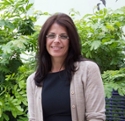 Susan Rinaldi is the Director of Triton Achievement Partners in the Teaching + Learning Commons at UC San Diego, where she partners with academic departments to offer academic success programs for undergraduate students including – but not limited to – Supplemental Instruction, Content Tutoring, Metacognitive Tutoring, and the Triton Freshman Scholars and Triton Sophomore Scholars success programs.
Susan Rinaldi is the Director of Triton Achievement Partners in the Teaching + Learning Commons at UC San Diego, where she partners with academic departments to offer academic success programs for undergraduate students including – but not limited to – Supplemental Instruction, Content Tutoring, Metacognitive Tutoring, and the Triton Freshman Scholars and Triton Sophomore Scholars success programs.
Before joining UC San Diego, Susan spent two years as the Associate Director of the University of Arizona THINK TANK (a comprehensive learning center) and prior to that five years as Coordinator of the Peer-led Study Group program and then developer and Coordinator of the Peer-led Tutoring program at the University of Michigan Science Learning Center. Through these various opportunities she has focused on creating an environment that provides high-level programming, discussions, materials, and assessments for students and staff to integrate into their approach college-level learning and support of students academically, personally, and professionally. In order to accomplish goals in these areas she applies and demonstrates a variety of strategies based on essential educational principles encompassing cognitive functioning, learning theory, diversity issues, instructional planning, and assessment. Susan has been and continues to be dedicated to serving students and promoting programming to foster their academic success.
Susan earned her Bachelor of Science degree in Cellular and Molecular Biology and a Master of Arts in Educational Studies from the University of Michigan. In 2016 she was awarded the National College Learning Center Association (NCLCA) prestigious national certification of Certified Learning Center Professional – Level 3.
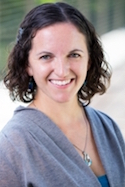 Dr. Erilynn Heinrichsen serves as Instructional Designer in the Teaching + Learning Commons’ Center for Engaged Teaching at UC San Diego. Supporting both new and advanced graduate student instructors, Dr. Heinrichsen’s goal is to ensure that Teaching & Instructional Assistants have the opportunity to receive effective pedagogical training for teaching diverse learners at UC San Diego and in preparation for their future careers. Prior to joining the Teaching + Learning Commons, she taught through the Division of Biological Sciences at UC San Diego and was adjunct faculty at San Diego City College.
Dr. Erilynn Heinrichsen serves as Instructional Designer in the Teaching + Learning Commons’ Center for Engaged Teaching at UC San Diego. Supporting both new and advanced graduate student instructors, Dr. Heinrichsen’s goal is to ensure that Teaching & Instructional Assistants have the opportunity to receive effective pedagogical training for teaching diverse learners at UC San Diego and in preparation for their future careers. Prior to joining the Teaching + Learning Commons, she taught through the Division of Biological Sciences at UC San Diego and was adjunct faculty at San Diego City College.
Dr. Heinrichsen earned her Ph.D. in Biomedical Sciences from UC San Diego and has been actively involved in the areas of student-centered instruction and inclusive teaching methods throughout her academic career, beginning with training as an NSF GK-12 Socrates Fellow in graduate school and then as an IRACDA (Institutional Research and Academic Career Development Award) Postdoctoral Scholar. Her current research interests include the development of graduate students as reflective and scholarly instructors, and creating opportunities for formative assessments of instructional design and delivery by IAs.